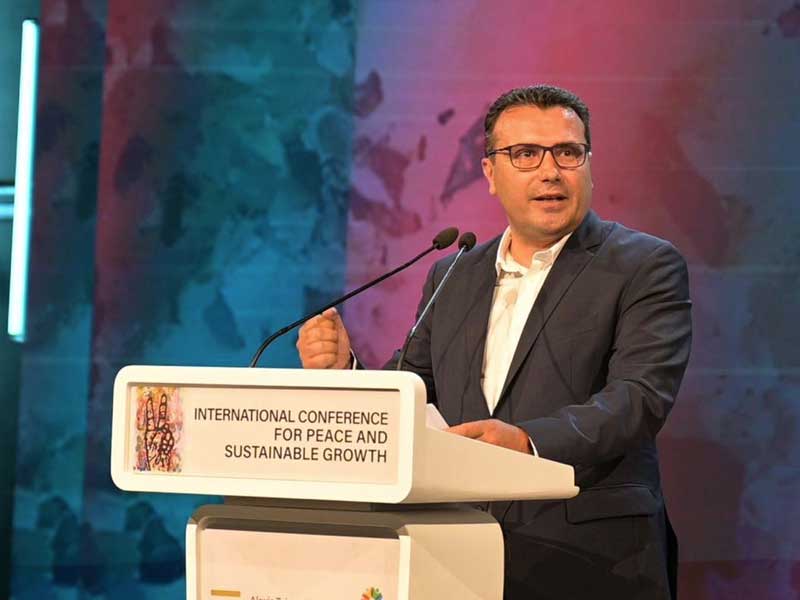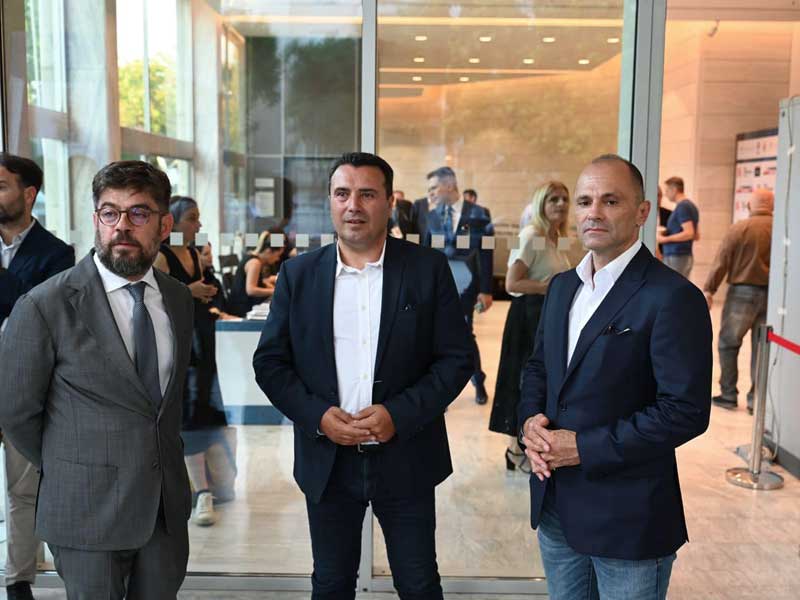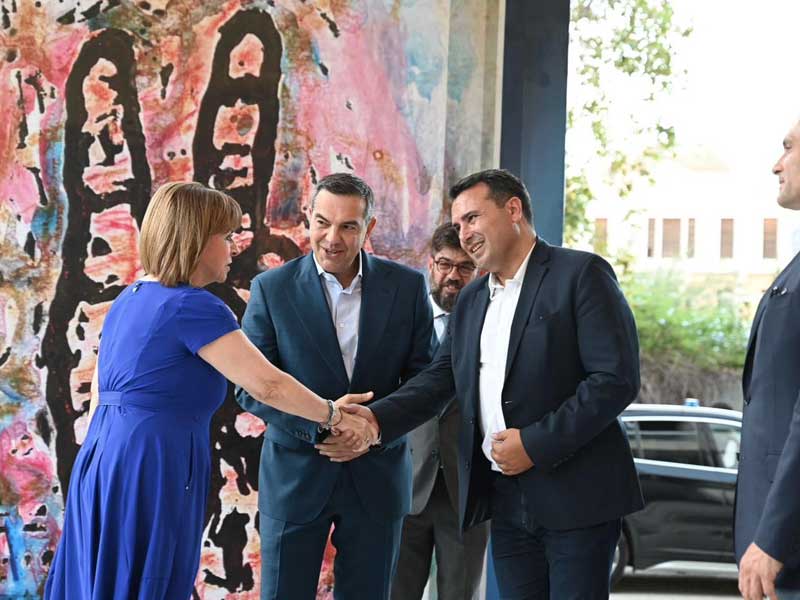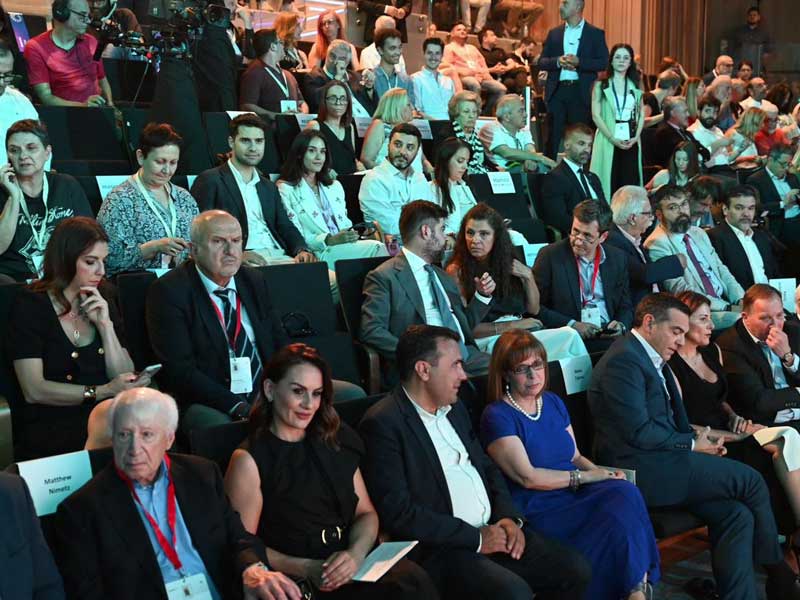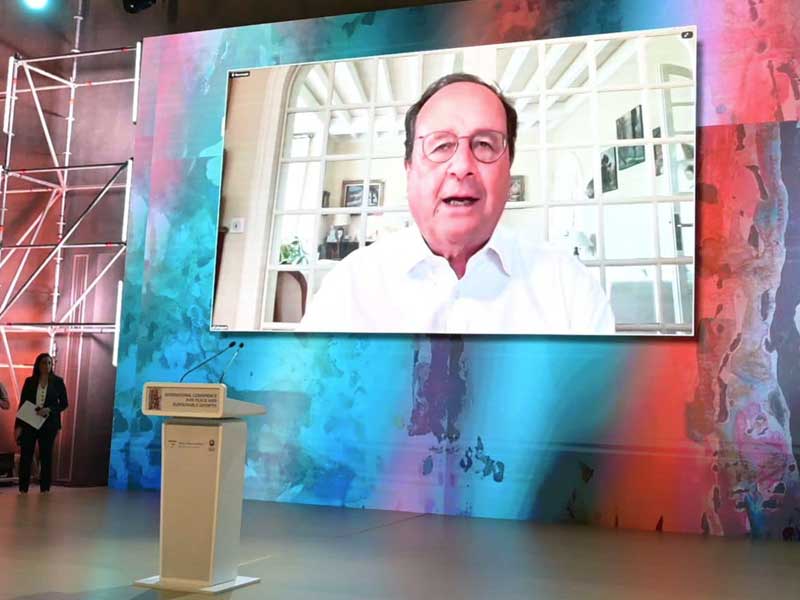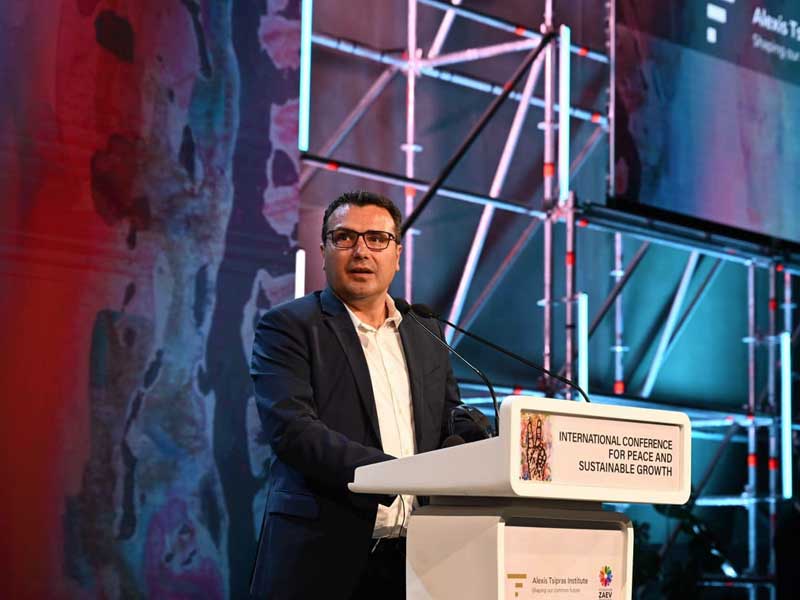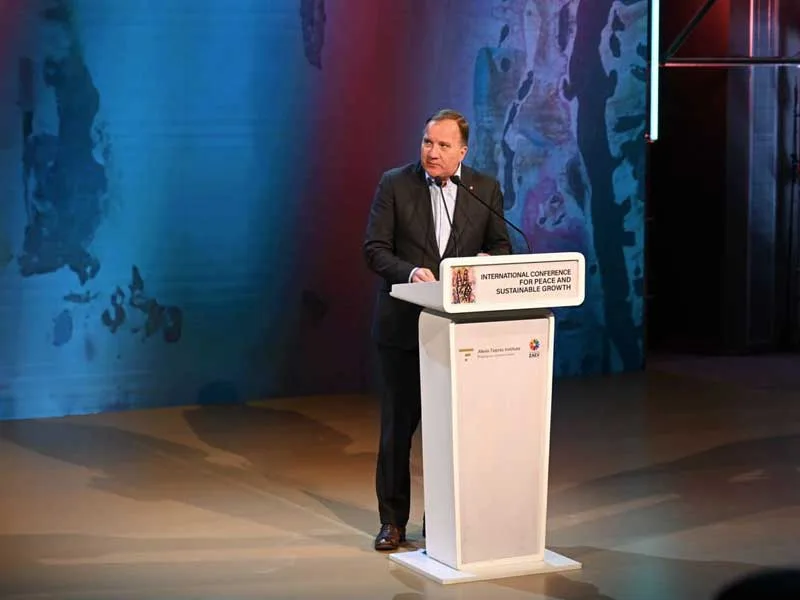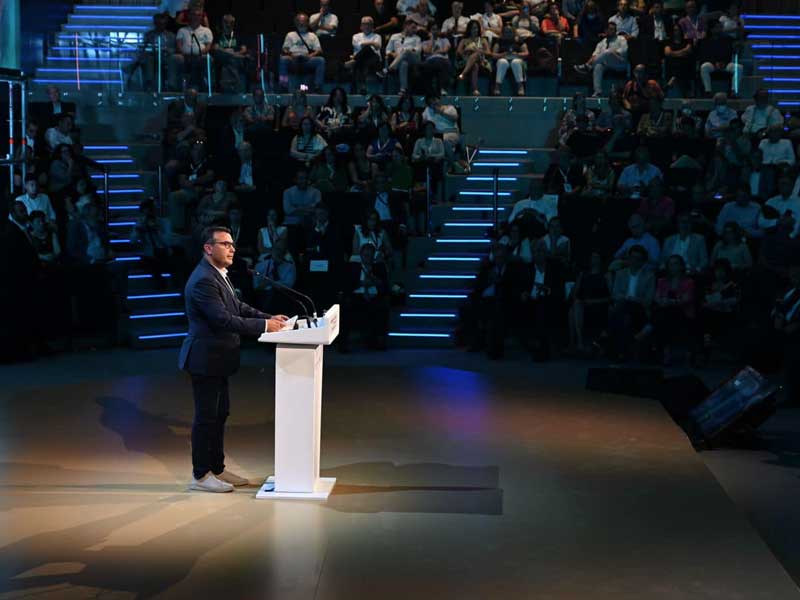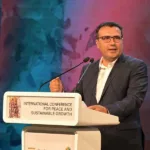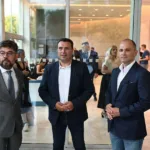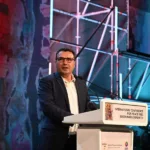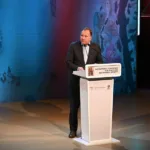From the 17th to the 18th of June, the International Conference on Peace and Sustainable Development took place in Athens, organized by the Zaev – One Society for All Foundation and the Alexis Tsipras Institute, commemorating six years of the signing of the Prespa Agreement.
The conference, seen by media reporters and attendees as a global forum addressing the current security climate, featured participation from several high-profile individuals. Among them were the former prime ministers of North Macedonia and Greece, Zoran Zaev and Alexis Tsipras, respectively, Greece’s President Katerina Sakellaropoulou, former Presidents Prokopis Pavlopoulos of Greece and François Hollande of France, Serbia’s Prime Minister Milos Vučević, former Greek Prime Minister George Papandreou, and Stefan Löfven, the former Prime Minister of Sweden and current president of the Party of European Socialists (PES).
The conference agenda included participation from prominent figures such as UN Secretary General Antonio Guterres, four European Commissioners including Johannes Hahn, EU Special Representative for the Belgrade-Pristina Dialogue Miroslav Lajčák, former EP President Martin Schulz, former Greek Foreign Minister Nikos Kotzias, and the mayors of Athens and Istanbul.
The event gathered over 40 leading government representatives, current and former foreign ministers, heads of international organizations, and representatives of center-left and progressive left-wing parties.
From North Macedonia, notable participants included former Prime Minister and President of the Zaev Foundation, Zoran Zaev, former Prime Minister Vlado Bučkovski, former Foreign Minister and Deputy Prime Minister Nikola Dimitrov, Venko Filipče as a representative of the Zaev Foundation, and Ilina Mangova from the International Republican Institute in North Macedonia.



